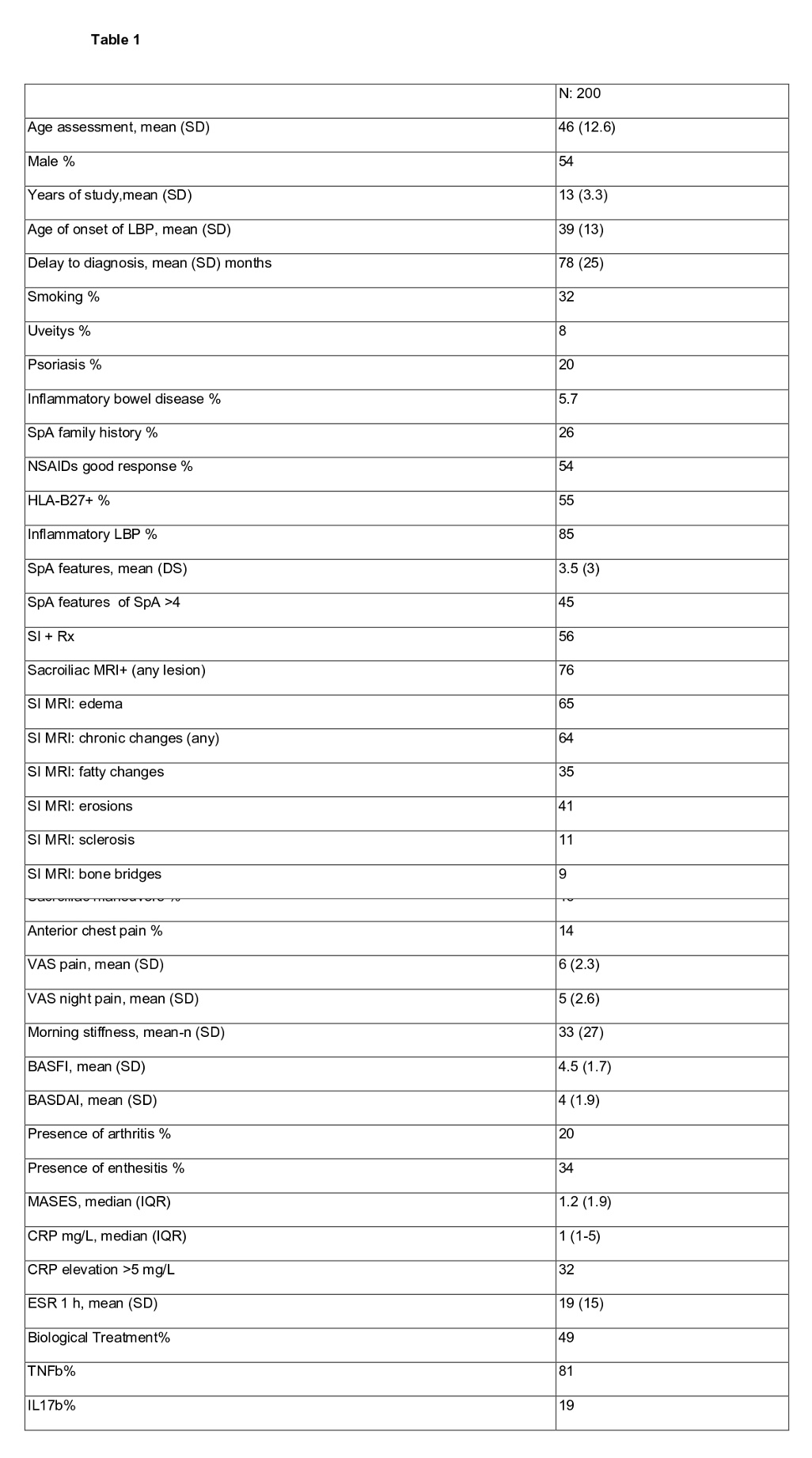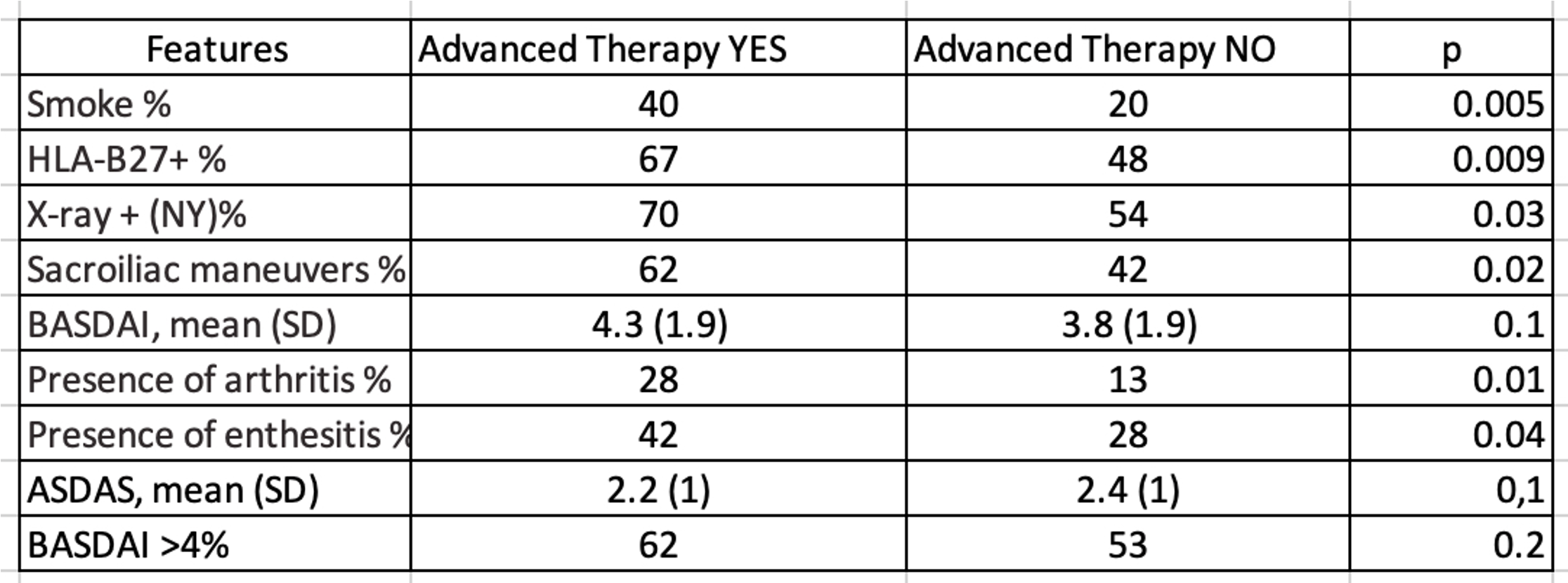Session Information
Session Type: Poster Session B
Session Time: 10:30AM-12:30PM
Background/Purpose: Access to advanced treatments in LATAM poses challenges due to various socioeconomic factors. The PANLAR-ESPALDA registry was established with the objective of gathering data specific to our region. The primary aim of this study is to described the frequency of advanced therapy in axSpA and analyze the characteristics of the patients receiving such treatments.
Methods: We included consecutive patients aged ≥18 years with axSpA (ASAS 2009) from medical centers in Argentina, Uruguay, Chile, Venezuela, Mexico, Colombia, and Ecuador. Recorded data encompassed demographic information, age at symptom onset, disease duration, disease-related symptoms, and comorbidities. Clinical and therapeutic aspects of the disease were documented at baseline, and specific questionnaires ASDAS/BASDAI/BASFI were administered. Additionally, we recorded erythrocyte sedimentation rate (ESR), C-reactive protein (CRP) in mg/dl, HLA-B27, X-rays, and, MRI of the sacroiliacs.
Results: A total of 200 patients were recruited, with a mean age of 46 years, and 54.5% were male (Table 1) Of the total, 49% (95% CI: 42-56) were on advanced therapy (following NSAID failure) at the baseline visit: TNFi: 80%, L17i: 15%, and Jaki: 5%. Ten percent of patients were in their second line of treatment. The characteristics of patients under advanced treatment (only the significant ones and disease activity) are detailed in table 1. More than 50% of patients without advanced therapies still presented disease activity (BASDAI > 4). In multivariate analysis, the characteristics independently associated with the use of advanced therapy were smoking (OR 2.8, 95% CI: 0.2-6.5) and HLA-B27 positivity (OR 4, 95% CI: 1.7-9).
Conclusion: In our region, the frequency of advanced therapy use in axSpA is 50%. Patients under these treatments tend to exhibit a more “typical” disease profile, including radiographic evidence, HLA-B27 and peripheral manifestations. Even with disease activity, a high subset of patients remains without these advanced therapies.
To cite this abstract in AMA style:
Garcia Salinas R, Sommerfleck F, Vila D, Palleiro D, Fernández-Ávila D, Casasola Vargas J, Barcia M, Candia Zuniga D, Marin Zucaro N, Brance M, Bautista-Molano W. Access to Advanced Therapies in Axial Spondyloarthritis in Latin America, Data from the PANLAR-ESPALDA Registry [abstract]. Arthritis Rheumatol. 2024; 76 (suppl 9). https://acrabstracts.org/abstract/access-to-advanced-therapies-in-axial-spondyloarthritis-in-latin-america-data-from-the-panlar-espalda-registry/. Accessed .« Back to ACR Convergence 2024
ACR Meeting Abstracts - https://acrabstracts.org/abstract/access-to-advanced-therapies-in-axial-spondyloarthritis-in-latin-america-data-from-the-panlar-espalda-registry/



